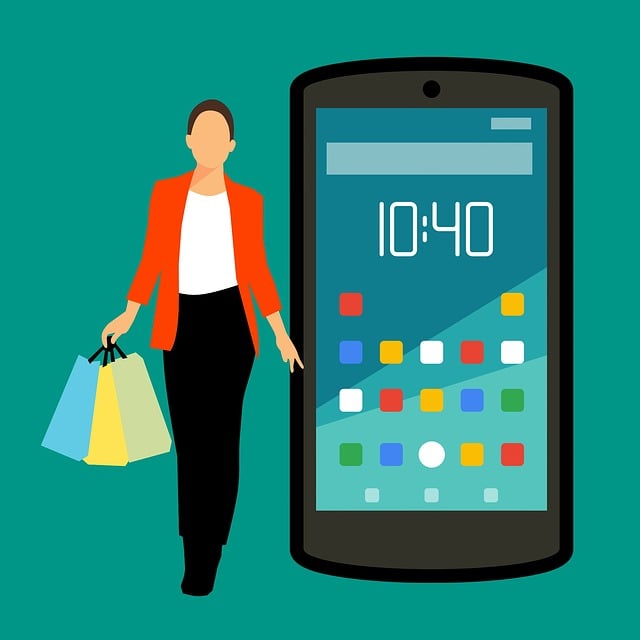Web therapy, or couples counseling virtual, has emerged as a popular and accessible way to receive professional relationship support. This modern approach allows couples to participate in sessions from home via secure video conferencing, offering flexibility for busy individuals. With online features like chat rooms, it enhances communication between sessions. As an alternative to traditional therapy, virtual couples counseling provides discretion and convenience, eliminating geographical barriers. Successful virtual sessions require a thoughtful setup, including technological comfort, private environments, and clear communication channels. Despite challenges in building trust and maintaining engagement, this method proves effective for relationship improvement, with its popularity growing due to technological advancements.
“Explore the transformative power of web therapy for partners in this comprehensive guide. Discover how virtual couples counseling offers accessible, convenient solutions for modern relationships. From understanding the basics and benefits to setting optimal online sessions and tackling common challenges, we equip you with insights.
Uncover the burgeoning future of digital mental health for partners and learn how these innovative approaches can strengthen connections and foster growth. Elevate your relationship journey through the power of technology.”
- Understanding Web Therapy for Couples: An Overview
- Benefits of Virtual Couples Counseling
- Setting Up a Successful Online Therapy Session
- Common Challenges and How to Overcome Them
- Future of Digital Mental Health for Partners
Understanding Web Therapy for Couples: An Overview

Web therapy, also known as online counseling or virtual couples counseling, is a modern approach to providing mental health support and has gained significant popularity in recent years. This innovative method allows couples to seek professional help from the comfort of their homes, eliminating geographical barriers often associated with traditional in-person therapy sessions. Through secure video conferencing platforms, couples can engage in therapeutic conversations with licensed therapists who specialize in interpersonal relationships.
The benefits of web therapy for couples are numerous. It offers flexibility, making it accessible for busy individuals or those living in remote areas. With just a stable internet connection and a suitable device, couples counseling virtual sessions can take place anywhere, providing convenience and discretion. Additionally, online platforms often include features like chat rooms, forums, or messaging systems, fostering ongoing communication between therapy sessions and enabling clients to reflect on their progress.
Benefits of Virtual Couples Counseling

In today’s digital era, web therapy for partners, or virtual couples counseling, offers numerous benefits that make it an attractive and accessible option for many. One of the key advantages is its flexibility; couples can participate from the comfort of their homes, removing geographical barriers and allowing them to access specialized support regardless of their location. This accessibility extends to those with busy schedules, enabling them to fit sessions into their packed calendars without the hassle of commuting.
Moreover, virtual counseling creates a safe and confidential space where partners can openly discuss sensitive topics without the potential judgments or distractions that might occur in a physical setting. The use of secure video conferencing platforms ensures privacy, fostering an environment conducive to honest communication. This medium also allows for a wide range of therapeutic techniques, including cognitive-behavioral therapy and mindfulness practices, which can be adapted to suit the unique needs of each couple, making virtual couples counseling a game-changer for those seeking improved relationship dynamics.
Setting Up a Successful Online Therapy Session

Setting up a successful online therapy session for couples counseling virtual requires careful planning and consideration. The first step is ensuring both partners feel comfortable with the technology involved, like video conferencing platforms, and have a stable internet connection to avoid disruptions during the session. Creating a private and distraction-free environment at home is crucial; this might involve setting up a dedicated space away from children, pets, or other household activities. Establishing clear communication channels before the session helps set expectations and ensures both partners feel heard and understood.
During the initial sessions, therapists should focus on building rapport, establishing boundaries, and discussing goals to create a safe and supportive virtual environment. Engaging in active listening, using visual aids, and incorporating interactive exercises can enhance engagement and make the therapy experience more dynamic, similar to traditional couples counseling but tailored for the online setting. Remember, effective virtual couples counseling leverages technology to bridge geographical gaps while maintaining the core principles of empathy, understanding, and collaborative problem-solving.
Common Challenges and How to Overcome Them

Couples counseling virtual platforms offer a convenient solution for many, but they also present unique challenges. One common hurdle is establishing trust and comfort in an online environment, especially when discussing intimate relationship issues. To overcome this, both partners should feel secure and supported by the therapist’s professional approach and the platform’s privacy measures. Encouraging open communication from the outset can help build rapport virtually, fostering a safe space for sharing.
Another challenge is maintaining engagement and focus during virtual sessions. Distractions are more prevalent at home compared to an office setting. Couples can combat this by creating a dedicated, quiet space for therapy, free from interruptions. Consistent attendance and active participation, such as using video rather than audio only, can enhance the therapeutic experience, making couples counseling virtual a powerful tool for improving relationships.
Future of Digital Mental Health for Partners

The future of digital mental health for partners and couples looks bright, with virtual couples counseling becoming an increasingly popular and effective option. This shift is largely driven by advancements in technology and a growing acceptance of online therapy as a legitimate form of care. With just a stable internet connection, couples can now access professional counseling from the comfort of their homes, breaking down geographical barriers that once limited access to mental health services.
Couples counseling virtual sessions offer flexibility, convenience, and discretion, making them appealing for busy individuals who may have difficulty finding time for in-person appointments. The rise of video conferencing platforms has further streamlined this process, enabling therapists to provide interactive and personalized support to remote couples seeking guidance on communication, conflict resolution, or simply a safe space to enhance their relationship. As technology continues to evolve, we can expect even more innovative approaches to web therapy, potentially integrating artificial intelligence and other cutting-edge tools to cater to the diverse needs of modern partnerships.
Web therapy offers a convenient and accessible solution for couples seeking counseling, allowing them to strengthen their relationships from the comfort of their homes. With the growing acceptance of virtual couples counseling, individuals can now benefit from enhanced privacy, flexibility, and reduced travel time. While challenges such as technical issues or maintaining a therapeutic environment at home exist, these can be effectively navigated through proper preparation and a supportive mindset. As digital mental health continues to evolve, web therapy for partners is poised to become an integral part of modern relationship support, providing effective and efficient care to those in need.






